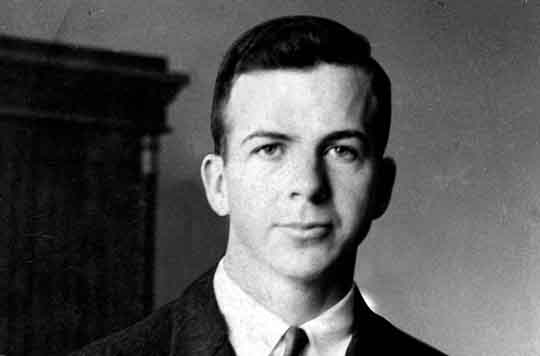|
Reviews of Recent Independent, Foreign, & Documentary Films in Theaters and DVD/Home Video
Written, Produced & Directed by Robert Stone. Director of Photography, Howard Shack. Edited by Don Kleszy & Stone. Music by Gary Lionelli. Released by Seventh Art Releasing. USA. 90 min. Not Rated. The final frames of Robert Stone’s new documentary Oswald’s Ghost state, “Well over 2,000 books have been published about the assassination of John F. Kennedy. Nearly 400,000 tourists visit Dealey Plaza every year. Seventy percent of Americans continue to believe JFK’s killing was the result of a conspiracy.” This isn’t even counting the thousands of Websites, countless documentaries, and even feature films on the subject. This only begs the question, why? The reply – in post-9/11 America, JFK’s assassination still has cultural relevance. Though, in truth, there is little that sets Oswald’s Ghost apart from other recounts of JFK’s untimely death. The film takes an interesting stance, in theory, by attempting to reveal how this event changed the American political climate for decades. Stone seems to want to push this line of thinking instead of analyzing the possible conspiracies that may have led to the assassination. But after a short introduction, where recently deceased writer Norman Mailer explicitly ties the event to 9/11, the film begins to delve into the books that have been written about the subject, questioning the guilt of Lee Harvey Oswald and the reasons for believing that there was more than one assassin involved in President Kennedy’s death. Though the film is well constructed with pertinent interviews, it ultimately feels stale until the last 20 minutes when it begins to touch on how the leftist agenda began to lose energy through the late ‘60s and into the ‘70s, beginning with JFK’s death and continuing through the assassinations of Martin Luther King, Jr. and Robert Kennedy. This surface analysis sparks the notion of a ripple effect throughout the progressive movement and the connection to a similar effect after the 9/11 attacks. The film ends with a quote from Mailer that embodies what is compelling in this film and what Stone fails to develop: “Oswald is a ghost that sits upon American life. He’s a ghost that lies over a great many discussions of what are some of the real roots of American history. What is maddening about ghosts is that you never know the answer. Is it this or is it that? You can’t know because the ghost doesn’t tell you.” The final act of the film takes on the rarely talked about evidence indicating no conspiracy, revealing that Oswald’s wife claimed he had attempted another killing shortly before the murder of JFK. But the intriguing interviews and the development of what is essentially the film’s essence comes too late and is underdeveloped.
Oswald’s Ghost is caught up in a tumultuous cycle of reexamining the single bullet theory; conspiracies involving the mafia, communist
uprisings, and CIA counter cells. The focus on these more well-known facts and theories distract from what is truly engaging here, the debunking and the ultimate effect Lee Harvey Oswald has had on the trajectory of American politics. The film is a great primer for a
viewer completely unfamiliar with the events surrounding the assassination. For a viewer with an even passing knowledge, it is frustrating as it
alludes to another level of contemplation beyond speculation. Dustin L. Nelson
|

